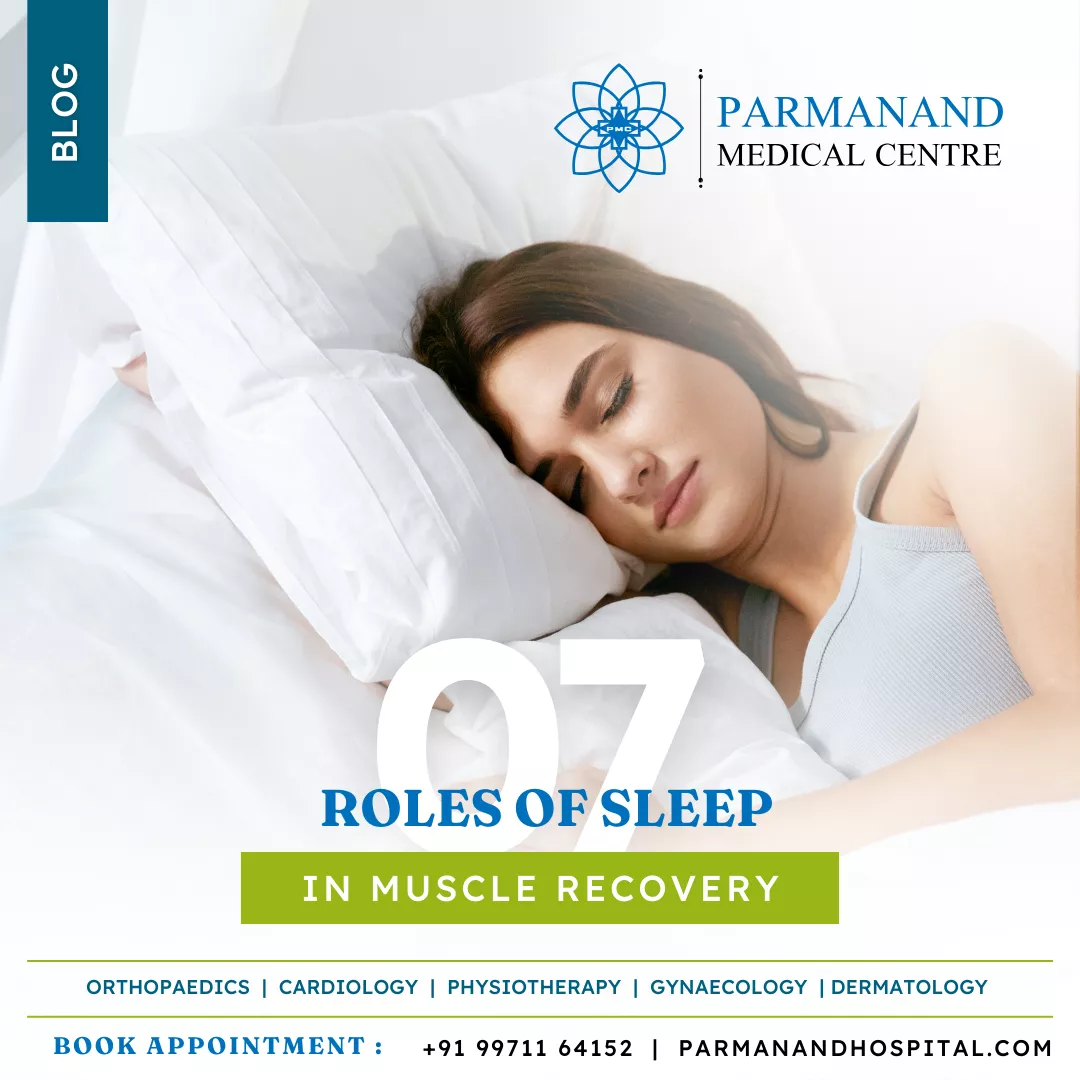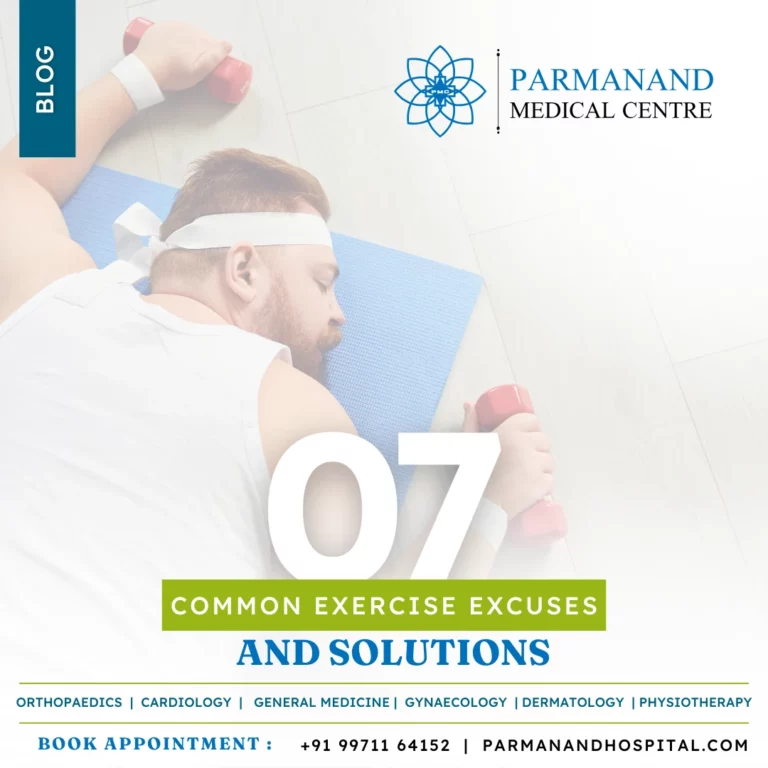In the realm of fitness and athletics, dedication, and perseverance are the name of the game. After an intense workout, you might be inclined to believe that the hard part is over, but there’s another vital component often underestimated: the role of sleep in muscle recovery. In this comprehensive guide, we will delve into the significance of sleep in muscle recovery and how it can propel you towards your fitness goals.

Understanding the Sleep Cycle – Sleep In Muscle Recovery
Before we dive into the profound connection between sleep and muscle recovery, let’s explore the two primary stages of sleep: REM and NREM.
REM Sleep:
Rapid eye movement sleep is a phase marked by intense brain activity. It is associated with cognitive functions like memory consolidation, learning, and sparking creativity. Moreover, it’s the period when you experience vivid and surreal dreams.
NREM Sleep:
Non-rapid eye movement sleep, on the other hand, is the stage where your body undertakes physical repair and restoration.
Muscle Behavior During Exercise
When you’re hitting the gym, your muscles are being pushed to their limits, handling greater resistance and heavier weights than usual. This intense exercise regime leads to microscopic tears in muscle tissue. Don’t worry; this is a natural part of the process. These micro-tears set off a cascade of reactions in the body. External cells rush to the torn areas, where they replicate, mature, and eventually fuse with your muscle fibers. This intricate process forms new muscle protein strands, eventually culminating in an increase in muscle strength and mass.
The Power of Sleep in Muscle Recovery

Sleep is undeniably an integral aspect of the muscle recovery process. During sleep, the body undergoes several physiological transformations that contribute to the repair and rejuvenation of damaged tissues. Let’s explore the role of sleep in muscle recovery in detail:
1. Muscle Repair and Growth – Sleep In Muscle Recovery
As you sink into the depths of slumber, your body springs into action. It releases human growth hormone (HGH), a key player in muscle repair and growth. HGH stimulates the critical process of protein synthesis, responsible for repairing damaged muscle fibers and creating new muscle tissue. Studies have underscored the importance of deep sleep in the release of HGH. Conversely, inadequate sleep results in reduced growth hormone secretion. It’s worth noting that both HGH and deep sleep naturally decrease as we age.
2. Replenishing Muscle Glycogen – Sleep In Muscle Recovery
During a profound sleep, your body engages in a vital task – replenishing muscle glycogen. Muscle glycogen is a primary energy source that depletes during physical activity. Quality sleep ensures that your body restocks these vital energy reserves, providing your muscles with the fuel they need for optimal performance.
3. Sleep Regulates Protein Synthesis – Sleep In Muscle Recovery
The construction of myofibrillar proteins is fundamental to muscle growth. Myofibrils, which are tube-shaped cells, string together to form muscle fibers. Sleep plays a pivotal role in regulating protein synthesis, especially the synthesis of myofibrillar proteins. Recent research suggests that a lack of sleep might lead to muscle mass loss and impede muscle recovery.
4. Glycogen Replenishment – Sleep In Muscle Recovery
Sleep contributes to the crucial task of replenishing muscle glycogen. Glycogen is the stored form of glucose, providing energy for muscle contractions during exercise. Your body ensures these glycogen stores are refilled during sleep, guaranteeing that your muscles are well-fueled for optimal performance.
5. Hormonal Balance – Sleep In Muscle Recovery

Sleep plays a crucial role in regulating hormone levels vital for muscle recovery. Testosterone, a hormone that promotes muscle growth and repair, is primarily released during sleep. Inadequate sleep can disrupt testosterone production, negatively affecting muscle recovery.
6. Reduction of Inflammation – Sleep In Muscle Recovery
Intense workouts can lead to muscle damage and inflammation. During the slumber hours, your body releases anti-inflammatory cytokines, which work diligently to reduce inflammation and aid the healing process.
7. Muscle Relaxation – Sleep In Muscle Recovery
Sleep ushers your body into a state of relaxation. This tranquil state allows your muscles to rest and recover. Muscle relaxation facilitates the release of tension, promoting effective muscle recovery.
The Impact of Deprived Sleep in Muscle Recovery:

Inadequate sleep can have a profound and detrimental effect on muscle recovery. The consequences of sleep deprivation on the muscle recovery process are striking:
- Impaired muscular endurance and strength: Individuals who are sleep-deprived tend to perform fewer repetitions and lift less weight compared to their well-rested counterparts.
- Delayed muscle recovery: Sleep deprivation can significantly slow down the healing process and increase the risk of injuries.
- Decreased muscle growth: Lack of sleep can hinder muscle recovery and growth, impacting the results of your training efforts.
Optimal Duration of Sleep in Muscle Recovery:
The ideal duration of sleep required for effective muscle recovery can vary depending on your lifestyle and workout intensity. Here are some guidelines:
- Aiming for 7 to 9 hours of sleep each night is a sensible goal. However, individual sleep needs can differ. Your specific requirements may depend on your daily activities and training schedule. For instance, if you have a demanding exercise routine and long work hours outside the gym, you may need extra sleep to support your recovery.
Enhancing Sleep Quality for Improved Muscle Recovery:
To optimize the quality of your sleep, consider the following tips:
- Strive for a consistent sleep schedule, going to bed and waking up at the same times daily. A regular sleep routine enhances the efficiency of your body’s internal clock, which plays a pivotal role in regulating your sleep-wake cycle.
- Maintain adequate hydration throughout the day. Research has begun to unveil the intricate link between hydration and sleep. Dehydration can disrupt your sleep, and conversely, sleep deprivation may lead to dehydration. Ensure you stay well-hydrated for overall health and quality sleep.
In Conclusion: Sleep isn’t merely a state of rest; it’s a crucial phase for muscle recovery and growth. Prioritizing quality sleep is essential for individuals pursuing optimal muscle recovery, enhanced strength.
Superspecialized Doctors in Yamuna Vihar
Parmanand Medical Centre, under the guidance of Dr. Shekhar Shrivastav – HOD Orthopedics of Sant Parmanand Hospital (Civil Lines, Delhi) specializes in Orthopedics and also offers its services in the departments of Cardiology, General Medicine, Gynecology, Dermatology, Physiotherapy & Diagnostic Tests.
We believe that everyone should have a moment and moderate access to the best health specialists, in their own locality. At Parmanand Medical Centre, Yamuna Vihar, this is the conviction that brings us all together and our objective is becoming substantially more and more vital due to the huge and developing issue of the absence of access to reasonable medicinal services.
If you have any inquiries regarding our physicians or services, please don’t hesitate to reach out to Parmanand Medical Centre. You can contact us by calling (+91) 997-116-4152 or by sending an email to contact@parmanandmedicalcentre.com. Additionally, you can click here to access our location on the map or request an appointment. We extend our best wishes to you and your family for a healthy and joyful time.
Connect with us on social media platforms for valuable health tips and general medical knowledge. Follow us on Instagram @parmanandhospital, like our page on Facebook @parmanandhospital, and join us on LinkedIn @parmanandhospital. Stay informed and inspired for a healthier life.



